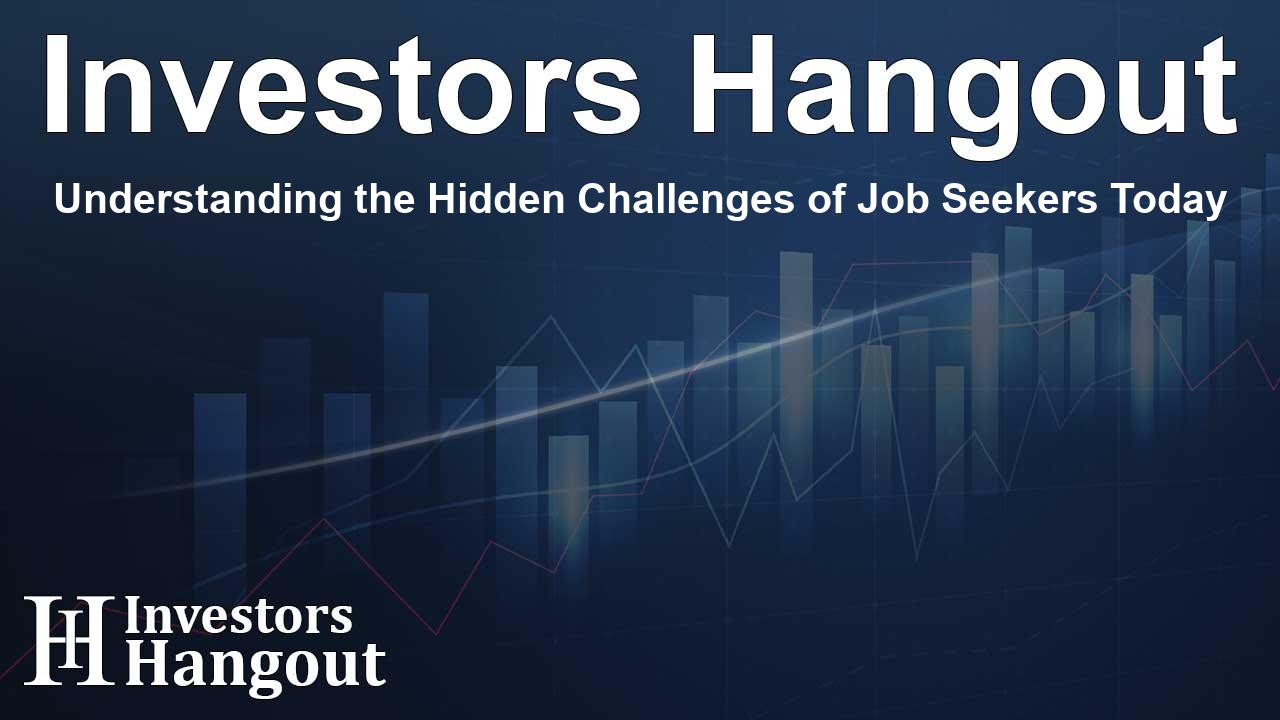Understanding the Hidden Challenges of Job Seekers Today

Unemployment's Impact on Skills and Well-Being
A recent survey highlighted a concerning trend: 41% of job seekers report a significant decline in their skills during periods of unemployment. This phenomenon can dramatically affect individuals looking for work, creating hurdles that extend beyond the professional realm.
Understanding the Mental Toll of Unemployment
The emotional strain faced by unemployed individuals is equally alarming. Job seekers often feel isolated and uncertain, which can lead to decreased confidence that further complicates their job search. These emotional challenges are exacerbated by an ever-changing job landscape that demands constant upskilling and adaptability.
Survey Insights on Unemployment Trends
According to a recent poll, there’s a small glimmer of hope: only 22% of unemployed individuals have been out of work for more than two years. That's a significant decrease from earlier figures, suggesting that some factors influencing unemployment are improving. Reasons such as voluntary resignations and layoffs continue to dominate the employment scene.
Common Challenges Faced by Job Seekers
Job seekers commonly report various practical issues stemming from extended unemployment:
- Deterioration of Skills: Many feel that their hard and soft skills have stagnated due to the time spent away from active work roles.
- Work Experience Gaps: Resume gaps are a major concern for around 37% of job seekers, creating anxiety about their employability.
- Loss of Confidence: Approximately 34% of individuals feel a drop in self-esteem linked to their job search struggles.
- Networking Difficulties: Networking becomes challenging, with 29% finding it harder to establish professional connections during unemployment.
- Industry Knowledge Gaps: Staying updated with industry trends is vital, yet 23% feel disconnected from current practices.
Generational Perspectives on Job Searching
Interestingly, generational differences influence how job seekers perceive their skills. Younger individuals, particularly those from Gen Z and millennial backgrounds, report more pronounced skill deterioration compared to their older counterparts. This highlights the unique challenges faced by younger job seekers in an increasingly competitive environment.
Strategies for Navigating Job Loss
Experts suggest several strategies for those on the job hunt to enhance their prospects of re-entering the workforce:
John Roller, a staffing expert, emphasizes that job loss can trigger a mix of emotions such as frustration and anxiety. This emotional rollercoaster can interfere with how individuals view their self-worth. Lisa Daijo notes that job seekers may feel disconnected, which can further complicate their confidence.
However, it's crucial to view this time as a chance for personal growth. While job seekers might struggle initially, they can use this opportunity to upgrade their skills or pursue further education to remain competitive in their field.
In addition, volunteering and earning microcredentials offer practical ways to stay engaged while enhancing one's qualifications. Daijo advises staying proactive and open about intentions when approaching potential networking connections.
Through these strategies, job seekers can manage their time effectively and turn unemployment into a constructive experience.
Embracing Unemployment as a Learning Opportunity
Although unemployment is rarely considered beneficial, it presents a unique chance for reflection. Individuals are encouraged to think critically about their career goals and personal values. This kind of introspection can lead to fulfilling career choices in the long run.
As Bill Stoller, the CEO of Express Employment International, suggests, harnessing this time for skill development transforms an employment gap into a stepping stone for future success. Cooperation and support from others can yield positive results when seeking new opportunities.
Many individuals have reported not only bouncing back but thriving after unemployment, illustrating resilience as a key factor in overcoming job loss.
Frequently Asked Questions
1. Why do job seekers experience skill deterioration?
Extended unemployment often leads to a lack of practice and exposure to current working environments, resulting in skill degradation over time.
2. How does unemployment affect mental health?
The stress and isolation associated with job loss can lead to anxiety and decreased self-confidence, significantly impacting mental well-being.
3. What are practical steps to stay employable during unemployment?
Engaging in skill development, networking, and considering volunteering can keep individuals connected and improve their job readiness.
4. How do generational differences impact job seekers?
Younger job seekers often face different challenges compared to older generations, such as greater skill deterioration and fewer established networks.
5. Can unemployment lead to positive career changes?
Absolutely! Many individuals use this time to reassess their career paths and pursue opportunities they may not have considered while actively employed.
About The Author
Contact Hannah Lewis privately here. Or send an email with ATTN: Hannah Lewis as the subject to contact@investorshangout.com.
About Investors Hangout
Investors Hangout is a leading online stock forum for financial discussion and learning, offering a wide range of free tools and resources. It draws in traders of all levels, who exchange market knowledge, investigate trading tactics, and keep an eye on industry developments in real time. Featuring financial articles, stock message boards, quotes, charts, company profiles, and live news updates. Through cooperative learning and a wealth of informational resources, it helps users from novices creating their first portfolios to experts honing their techniques. Join Investors Hangout today: https://investorshangout.com/
The content of this article is based on factual, publicly available information and does not represent legal, financial, or investment advice. Investors Hangout does not offer financial advice, and the author is not a licensed financial advisor. Consult a qualified advisor before making any financial or investment decisions based on this article. This article should not be considered advice to purchase, sell, or hold any securities or other investments. If any of the material provided here is inaccurate, please contact us for corrections.
